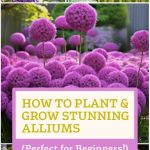Being a busy mom, I’m always on the lookout for low-maintenance plants. And, let me tell you, discovering alliums was a game changer for me!
Today, I share everything I learned about planting and growing stunning alliums in the garden.
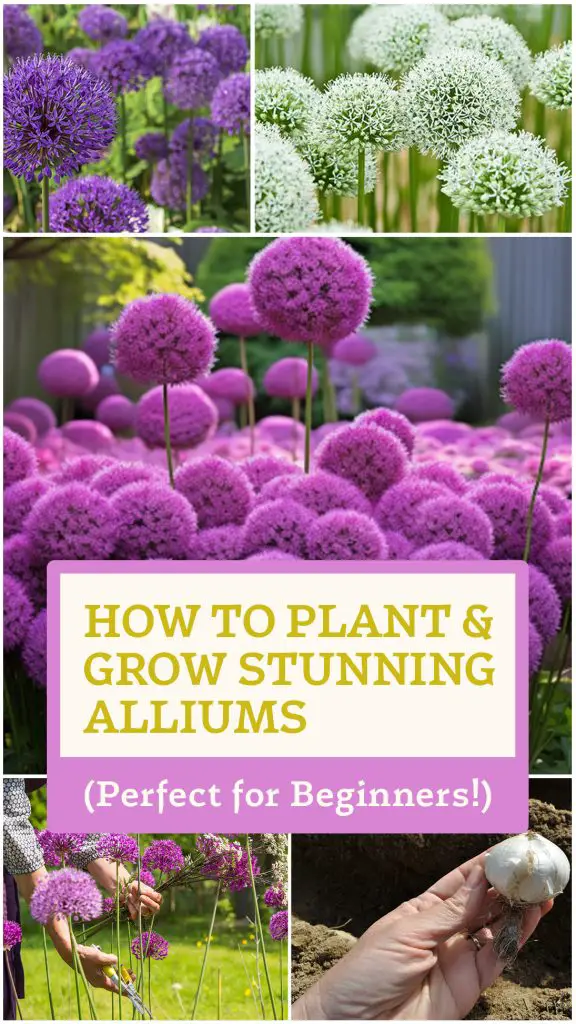
What Are Alliums?
Alliums are a genus of flowering plants that comprise hundreds of species. Each species has its color, appearance, height, and blooming time. That said, most alliums have large purple flowerheads that resemble globes.
What’s interesting about alliums is that they’re a close relative of onions. They produce bulbs that are incredibly easy to sow. Growing them is fun, and you can even involve the kids with the planting!
The Advantages of Planting Alliums
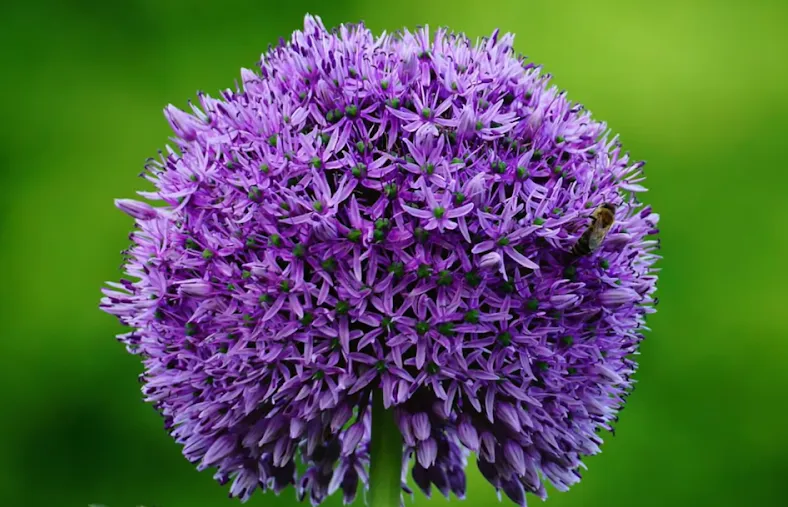
I’m a firm believer that alliums are the perfect addition to the garden. Here are a few reasons why.
- They’re reliable perennials that are pest and disease-resistant. Deers and rabbits will stay away from them.
- Alliums are self-seeding. You only need to plant them once, and they grow back every summer.
- They bloom during a lull in your garden, beautifying the area when other flowering plants have wilted.
- They attract bees and other pollinators to your garden!
The Most Beautiful Allium Varieties
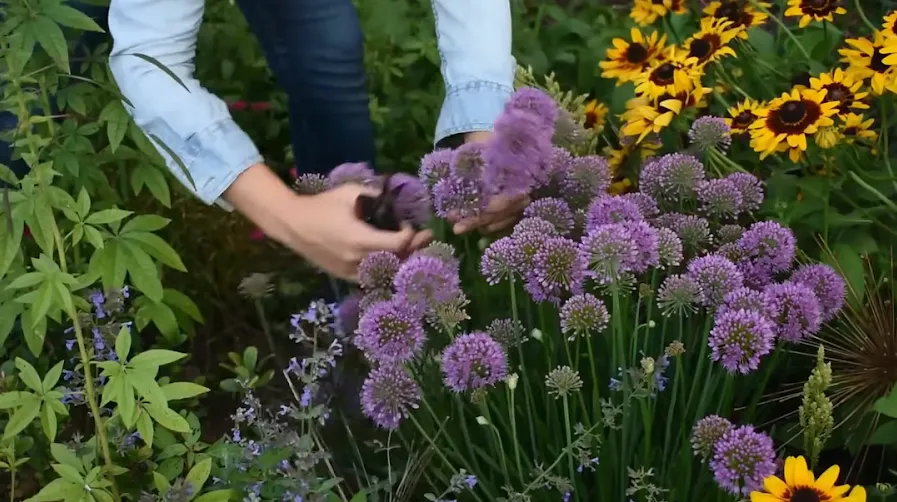
Some of the most beautiful allium species include the following:
- Purple Sensation: The purple sensation is a stunning allium that can grow three feet tall. It’s also one of the long-lasting allium varieties as it can bloom for up to two weeks!
- Gladiator: Also known as the giant onion, the gladiator allium boasts a beautiful reddish-purple inflorescence.
- Allium Atropurpureum: This allium doesn’t have a globular shape. However, it has a gorgeous burgundy color unlike any other.
- Sicilian Honey Garlic: The Sicilian Honey Garlic is a cascading type of allium with pink and plum flowers.
- Millenium Alliums: The millenium is a herbaceous allium with aromatic foliage. It’s one of my favorites because it stays in bloom until late summer!
How to Grow Alliums
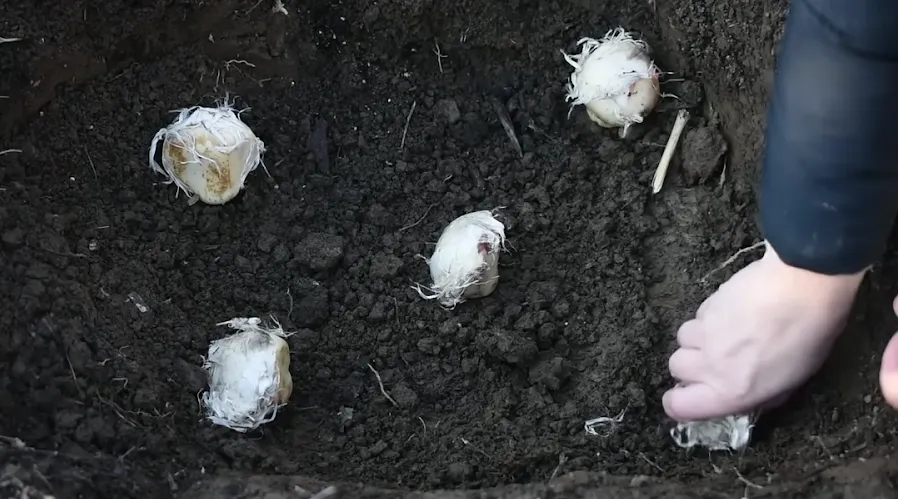
What I like most about alliums is they’re low-effort plants. It’s easy to grow them even with my busy schedule as a mom!
When to Plant Alliums
Being a midsummer plant, the best time to plant alliums is during fall. That said, you may also sow them in early spring or early winter before the ground freezes.
Your alliums will typically bloom from May to July, bringing life to your garden just as the tulips and other flowers start to fade.
Where to Plant Alliums
When planting alliums, you should look for a spot in your garden with full to half-day sun. My tip is to plant them along borders or among other perennials.
When alliums bloom, their leaves tend to turn yellowish. Being among other types of plants will help cover the drying foliage.
Allium Spacing and Depth
Sow allium bulbs in well-draining soil with the roots facing down. The depth and distance of each bulb will vary depending on the variety and bulb size.
As a general rule, you should plant alliums three times as deep as the bulb height. The spacing should be two to three times as wide as the bulb.
Based on my experience, it’s important to follow the proper spacing. Remember, allium plants can grow several feet high. The mature allium plant will topple over if you don’t give the roots enough space to develop!
Allium Watering Requirements
Allius planted directly into the ground will need little watering and maintenance. The plant will receive all the water it needs during the winter.
Note that potted alliums need more watering than alliums planted in the ground.
You can water potted alliums up to three times a week at the height of summer. In addition, you should water alliums twice a week during a drought.
What to Do With Your Alliums
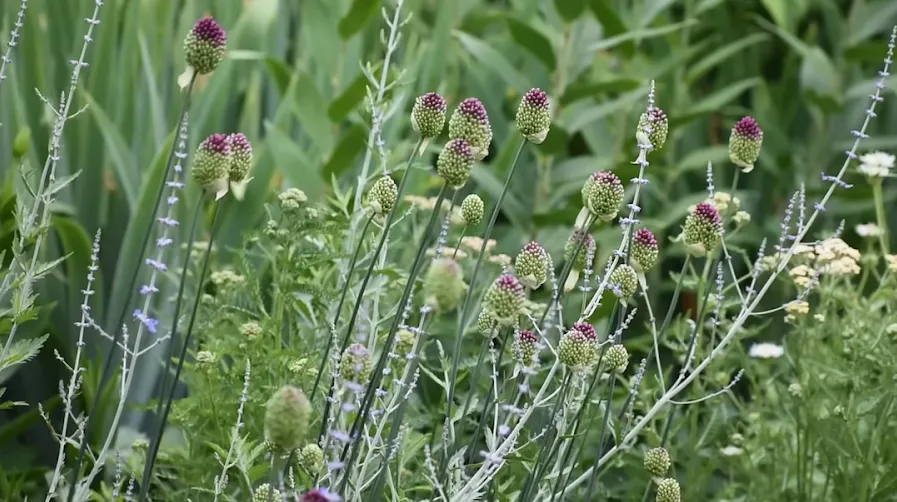
I love bringing alliums into my home once they’re in full bloom. They make great ornaments, and I sometimes use them as a centerpiece for our dining table.
Alliums also dry well. You can decorate your bedroom with dried alliums throughout winter. Moreover, you may use them for a crafting project with the kids!
After your allium plants bloom, you can either leave the seed heads as is or take them from the garden. Alliums can become aggressive self-seeders and some people may not like it when they go out of control.
For me, however, alliums are self-sufficient flowers that are extremely easy to grow. It always excites me when I find one growing in a new corner of my garden!

